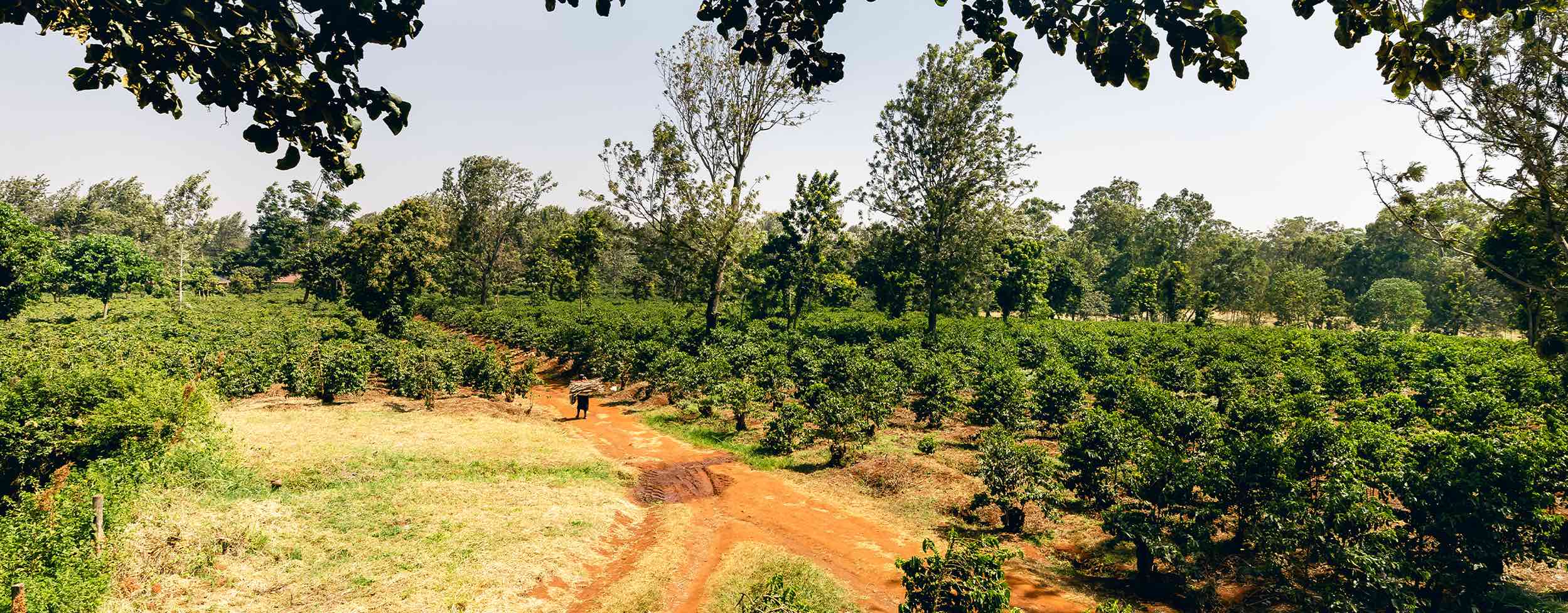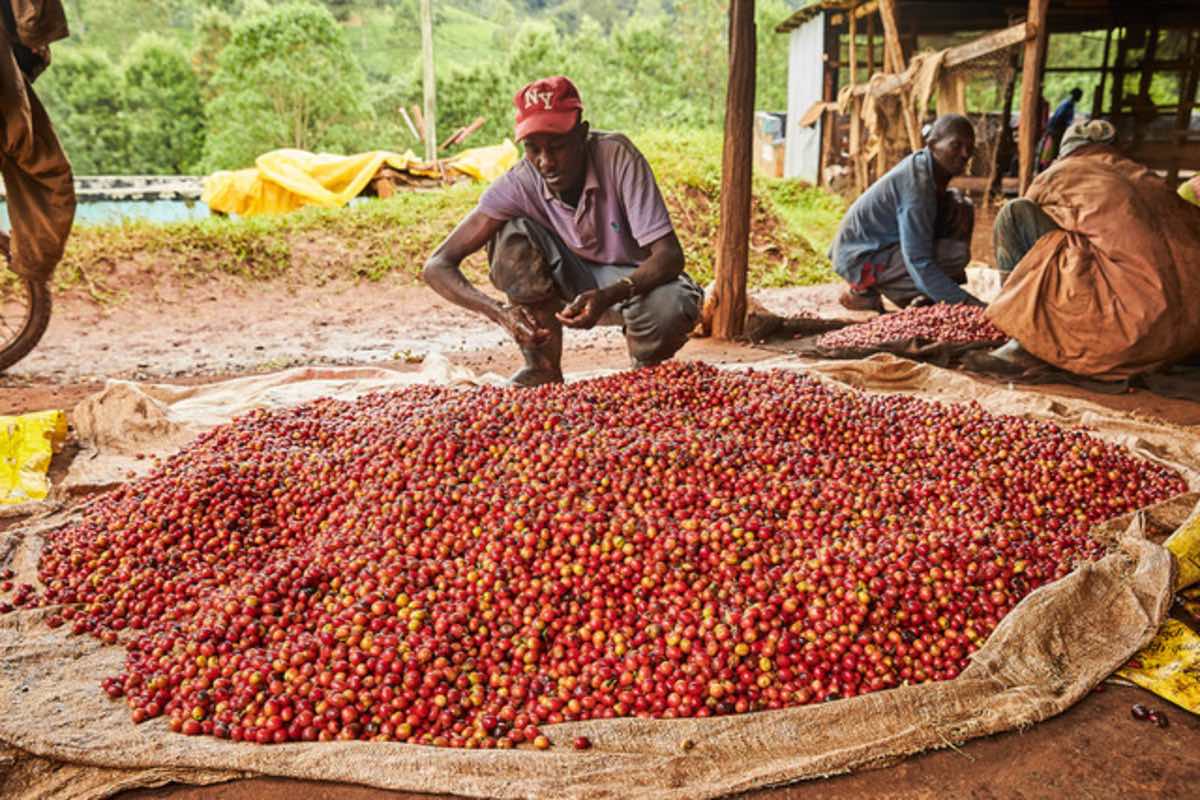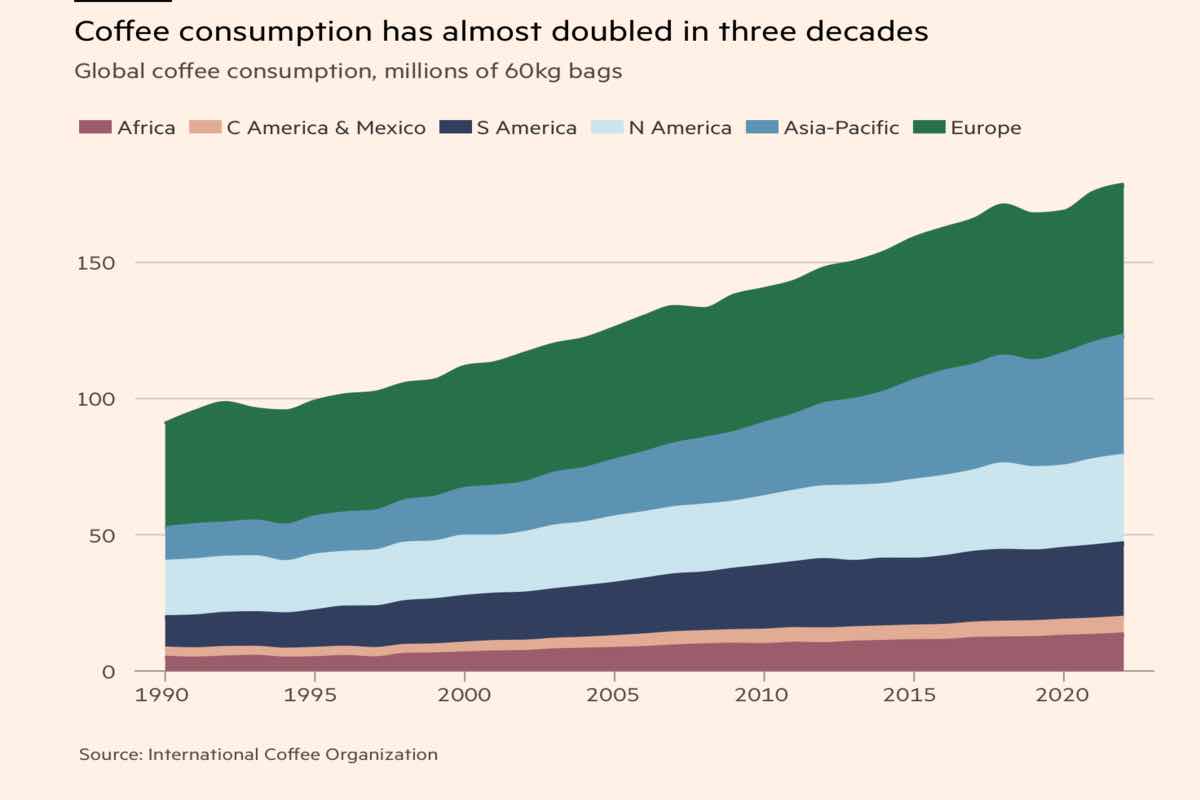
The Future of Coffee Production Amid Climate Change
Introduction : Brewing Challenges: The Future of Coffee Production Amid Climate Change
As global coffee consumption surges, the industry is grappling with an array of challenges that could impact the future of coffee production.
Growth rates in Asia and Africa, often seen as symbols of middle-class ascent, are outpacing traditional markets. Major coffee brands, including Starbucks, Costa Coffee, Lavazza, and Tim Hortons, are vying for a piece of the rapidly expanding Chinese market.
Current trends suggest that global coffee consumption will double to 6 billion cups daily by 2050, demanding a 25 percent increase in coffee production by 2030, according to the Columbia Center on Sustainable Investment.
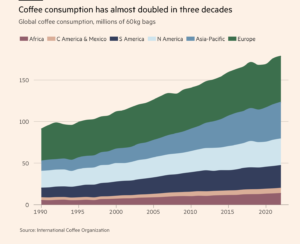
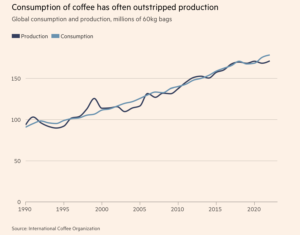
Challenges to Coffee Production
1.Climate Change Threatens Suitable Land: Climate change poses a significant threat to coffee cultivation. Suitable land for coffee farming is dwindling as global temperatures rise.
This is exacerbated by the sensitivity of the Arabica coffee plant, favored by many, to warming weather and the spread of leaf rust, a harmful fungus. Wild Arabica relatives, vital for genetic diversity, have even been listed as endangered species.
2.Robusta: A Resilient but Vulnerable Variety: Robusta coffee, known for its hardiness and resistance to pests and diseases, is also under threat.
While it can withstand higher temperatures, it remains susceptible to extreme weather patterns.
3.Declining Coffee Land: Estimates suggest that up to half of the land used for coffee production could become unusable by 2050.
Key producers like Brazil, Vietnam, Colombia, and Indonesia are likely to see decreases in the size and suitability of their coffee-growing areas.
4.Exploring New Varieties: To address these challenges, scientists are exploring new coffee varieties. A variant of Coffea liberica, once dismissed for its taste, is showing promise.
Additionally, the smaller-seeded excelsa variant is gaining attention, thriving in warmer conditions and offering a taste closer to Arabica. These varieties could be bred with Arabica or Robusta to create more climate-resilient plants.
Embracing New Coffee Horizons: The Rise of Excelsa
Amid the changing landscape of the coffee industry, a remarkable shift is underway as coffee farmers in Uganda and South Sudan turn to the lesser-known Excelsa coffee bean. This smaller-seeded variant, often overshadowed in the past, is now taking center stage.
With flavor notes reminiscent of Arabica but thriving in warmer, lower-elevation conditions akin to Robusta, Excelsa is showing immense promise. Researchers suggest that this versatile bean could be crossbred with Arabica or Robusta to create more climate-resilient coffee plants.
As Excelsa gains recognition, coffee traders are eager to introduce this unique bean, known for its intriguing tasting notes, to specialty roasters, potentially reshaping the coffee industry’s future.
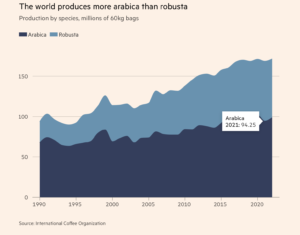
Conclusion
Altogether, the coffee industry faces an urgent need for adaptation and innovation to meet the soaring global demand for coffee. Climate change, land suitability issues, and the vulnerability of existing coffee varieties are pressing concerns.
Exploring new coffee bean varieties and promoting sustainability throughout the supply chain are crucial steps toward ensuring the future of coffee production.
As consumers increasingly view coffee as a necessity, the industry must act swiftly to safeguard its rich diversity of flavors and maintain its widespread appeal.
Charts and statistics source : Financial Times Limited & International Coffee Organisation



